
|

 | |||
| |||
 | |||
Why We Dig Up the Past
by McGuire Gibson by Susan Kidwell by Paul Sereno
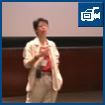
Geologist Susan Kidwell discusses the "gosh wow" aspects of her field, the importance of understanding deep time, and why "weeds" tend to survive periods of mass extinction. (16:32 min)
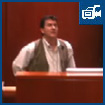
Paleontolgist Paul Sereno screens a video describing one of his latest finds and discusses what living crocodiles can teach us about their ancestors. (8:29 min)
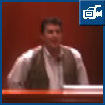
Sereno describes dinosaur diversity and explains how the study of dinosaur evolution provides answers to the question, "How did evolution build birds?" (13:25 min)
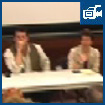
Sereno and Kidwell answer questions about wrestling crocodiles, envisioning dinosaurs, and guiding Congress on species preservation. (11:27 min) Relevant Links
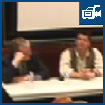
Gibson and Sereno respond to questions about history and prehistory, cool finds, and feathered dinosaurs. (7:40 min) ABOUT THE AUTHOR | McGuire Gibson
Paul Sereno's Dinosaur Website
(dinosaur.uchicago.edu)The Oriental Institute
(www-oi.uchicago.edu)
McGuire Gibson is a professor of Near Eastern languages and civilizations and an archaeologist at the Oriental Institute of the University of Chicago, from which he earned his A.M. in 1964 and his Ph.D. in 1968.One of the world's preeminent scholars of Mesopotamian studies, Gibson has made immense contributions in the understanding of ancient Near Eastern civilizations through his research at such sites as Hamoukar and Nippur.
Gibson is a member of the editorial board of the Belgian journal, Akkadica, and serves on the boards of the Council of American Overseas Research Centers and the American Institute for Yemeni Studies.
Susan Kidwell
Susan Kidwell is a professor in the department of geophysical sciences and a member of the committee on evolutionary biology at the University of Chicago, where she has taught since 1985.Kidwell received her B.S. in geology from the College of William and Mary and received her Ph.D. in geology from Yale. She was assistant professor at the University of Arizona from 1981 to 1985.
She is a member of the Earth Sciences Board of the National Research Council, which advises the federal government on science and science policy. Kidwell's accolades include the Charles Schuchert Award of the Paleontological Society, the premier international prize for paleontology, and the Quantrell Prize for excellence in undergraduate teaching.
Paul Sereno
Paleontologist Paul Sereno is a professor in the University of Chicago's department of organismal biology and anatomy, where he has been teaching since 1987. Sereno, who is also a National Geographic Society Explorer-in-Residence, earned his doctorate at Columbia University.Sereno has led excavations in Niger since 1990 and has worked in Argentina, Morocco, China, and Mongolia. During the expeditions, he and his colleagues have discovered a number of new species, including Herrerasaurus, Afrovenator, Jobaria tiguidensis, Suchomimus, Deltadromeus, Carcharadontosaurus, Sarcosuchus imperator, and the first member of the species Eoraptor.
In 1998 Sereno and his wife, Gabrielle Lyon, co-founded Project Exploration, an organization dedicated to bringing dinosaur discoveries and natural science to the public and providing innovative educational opportunities for city youths.
Many documentaries record Sereno's efforts, and he has written popular articles for National Geographic and Natural History magazines as well as a book on Tyrannosaurus for young readers. Sereno's recognition includes the Chicago Tribune's Teacher of the Year Award (1993), Chicago magazine's Chicagoan of the Year (1996), Newsweek magazine's The Century Club (1997), People magazine's 50 Most Beautiful People (1997), Esquire's 100 Best People in the World (1997), Boston Museum of Science's Walker Prize for extraordinary contributions in paleontology (1997), and Columbia University's University Medal for Excellence (1999).
COPYRIGHT | This feature is adapted from the panel discussion "Why We Dig Up the Past," originally presented at the University of Chicago on June 1, 2002. Copyright 2002 The University of Chicago.
(c) 2004 The University
of Chicago :: Please direct questions
or comments to furlong@lib.uchicago.edu |